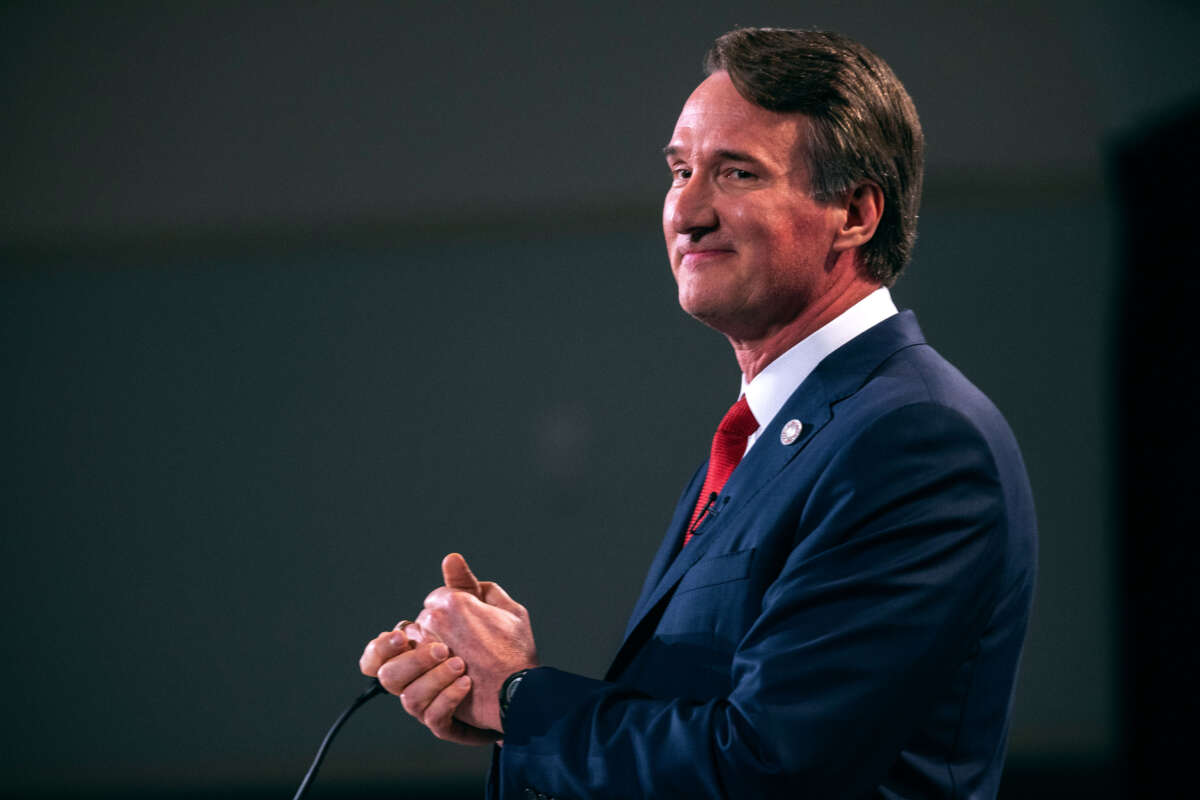Truthout is a vital news source and a living history of political struggle. If you think our work is valuable, support us with a donation of any size.
Arlington Public Schools has announced that they will refuse to comply with the Virginia Department of Education’s (VDOE) discriminatory policies toward transgender students in the state, which were finalized by Virginia Gov. Glenn Youngkin (R) last week.
“We have reviewed the model policies and determined that our current policies and policy implementation procedures that protect the rights of our transgender students will stay as is,” the Arlington Public Schools superintendent, Dr. Francisco Durán, wrote in a letter released on July 20.
The VDOE “model policies” bar transgender students from school sports and from using bathrooms that align with their gender identity. Under the new policies, teachers would also be forced to refer to students by the name and pronouns on their official record, effectively forcing them to misgender many of their students.
“Today, Governor Youngkin and the VDOE made a dangerous, politically motivated decision to ignore the thousands of Virginians who submitted public comments in opposition to his proposed model policies — policies which single out transgender and nonbinary youths in our schools,” Narissa Rahaman, executive director of Equality Virginia, said in a statement.
The move by Arlington Public Schools comes after other school districts in the state, including Falls Church, Alexandria, and Richmond, announced earlier this year that they will defy VDOE’s transphobic model policies in order to protect their transgender students.
Many of these policies were introduced as bills in the Virginia legislature this session but were defeated, failing to be signed into law. By enacting these policies, Virginia is now in line with states like Florida, Arkansas and Alabama, which have passed some of the harshest anti-trans laws in the country.
“This is the government deciding, not parents deciding, what is best for students,” Shannon McCay, founder of the nonprofit He She Ze and We, told CBS 6. “If they were really centering parents in this policy, then they would believe parents like me and all the families I work with.”
The original policy was unveiled in 2022 and met with significant backlash from students, parents, teachers and LGBTQ advocates. The policies will affect more than 4,000 transgender students in Virginia. During an extensive public comment process, more than 70,000 public comments were submitted. Thousands of students also organized school walkouts to protest the policy.
In March, a transgender high school student confronted Youngkin about the transphobic policies during a CNN town hall event. The student, Niko, asked the governor if he thought that girls at Niko’s high school would be comfortable sharing the bathroom with him. Youngkin dodged the student’s question.
“Even for a Governor who has made his name out of manufacturing political outrage on the backs of hardworking teachers and innocent students, the intentional targeting of LGBTQ+ students in such a blatant and crass manner in the name of ‘parental rights’ is an outrageous affront to decency,” Dr. James J. Fedderman, President of the Virginia Education Association, said in a statement.
VDOE’s anti-trans policies stem from a 2020 state law which tasked the VDOE with creating model policies on transgender students. While the law was conceived to protect transgender students and was celebrated as such, Youngkin, who ran on a “parental rights” and anti-“woke” campaign, weaponized the law against transgender kids. Research conducted by the Trevor Project shows that transgender youth who attend gender-affirming schools are less likely to attempt suicide — meaning that Youngkin’s endorsement of these polices may very well be a death sentence for some trans kids.
“All school boards and superintendents should remember that no schools are required to implement this administration-crafted policy and should think twice before considering this politically divisive debate and exposing themselves to extensive legal liability,” Fedderman said. “If implemented, these policies would no doubt threaten the safety and well-being of LGBTQ+ students, open the door for bullying, and set back their recent civil rights gains in Virginia.”
A terrifying moment. We appeal for your support.
In the last weeks, we have witnessed an authoritarian assault on communities in Minnesota and across the nation.
The need for truthful, grassroots reporting is urgent at this cataclysmic historical moment. Yet, Trump-aligned billionaires and other allies have taken over many legacy media outlets — the culmination of a decades-long campaign to place control of the narrative into the hands of the political right.
We refuse to let Trump’s blatant propaganda machine go unchecked. Untethered to corporate ownership or advertisers, Truthout remains fearless in our reporting and our determination to use journalism as a tool for justice.
But we need your help just to fund our basic expenses. Over 80 percent of Truthout’s funding comes from small individual donations from our community of readers, and over a third of our total budget is supported by recurring monthly donors.
Truthout’s fundraiser ended last night, and we fell just short of our goal. But your support still matters immensely. Whether you can make a small monthly donation or a larger one-time gift, Truthout only works with your help.
